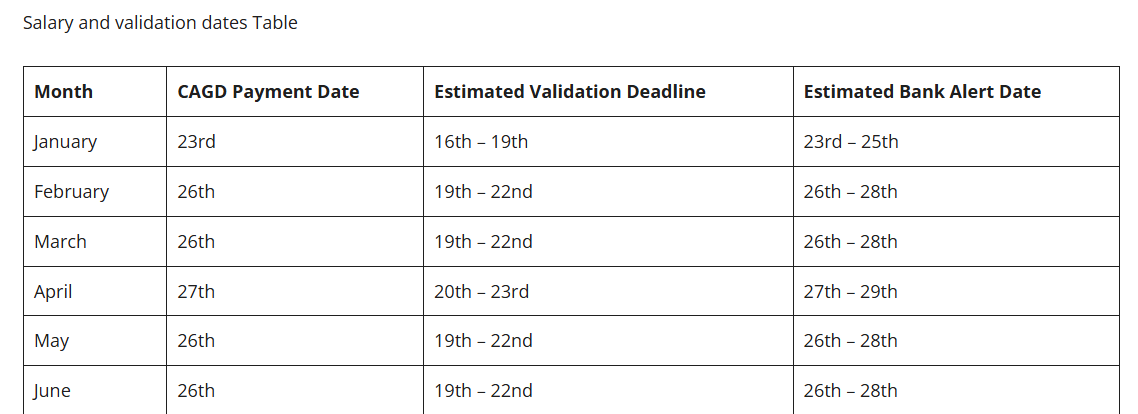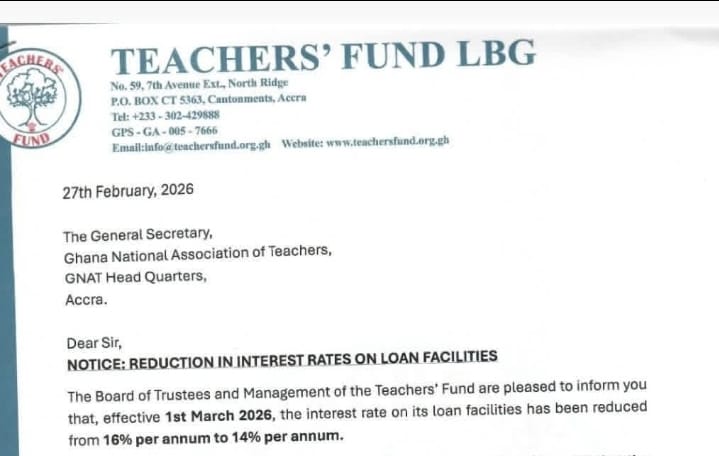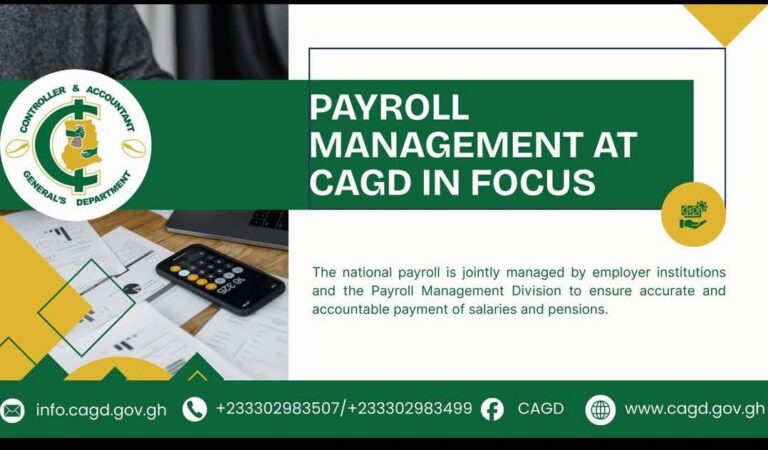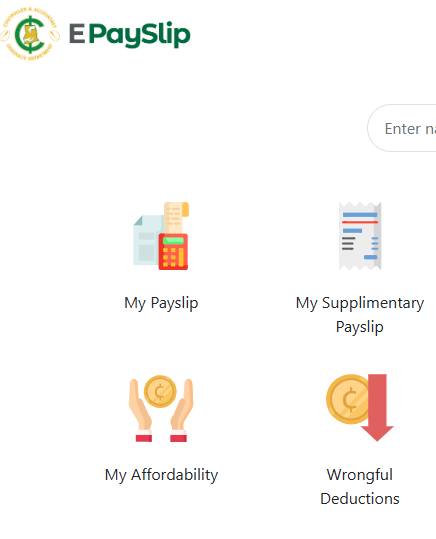
CAGD 2026 Salary Payment and Validation Dates for Public Sector Workers in Ghana
As a public sector worker in Ghana, staying on top of your salary payment schedule is crucial for financial planning. The Controller and Accountant-General’s Department (CAGD) is responsible for managing payroll for civil servants, Ghana Education Service (GES) employees, and other public servants. In October 2025, CAGD released the official salary payment dates for 2026, outlining when banks will credit employees’ accounts. This schedule applies to all eligible workers paid through the CAGD system.
Note that these dates are subject to any changes communicated by CAGD, such as due to holidays, system issues, or economic factors. Always check the official CAGD website (cagd.gov.gh) or your HR department for updates.
2026 Salary Payment Dates
Based on the official notice from CAGD, here’s the tabulated schedule for monthly salary payments in 2026:
| Month | Payday |
|---|---|
| January | 23rd |
| February | 26th |
| March | 26th |
| April | 27th |
| May | 26th |
| June | 26th |
| July | 27th |
| August | 27th |
| September | 25th |
| October | 26th |
| November | 25th |
| December | 21st |
Follow us on WhatsApp for more updates: CLICK HERE
Seekers Consult
Contact Us for Your Study Abroad Journey
We search for schools and check available scholarships for you
Contact: 0550414552 / 0362297079

Loan for government workers
Transcript Application
English Proficiency
Recommendation letter
Project work/thesis for undergraduate, master’s, and PhD students.
Apply for Affidavit, Gazette instantly
Passport and Visa Applications
All other Internet Services
Payments typically start crediting on these dates, but processing times can vary by bank. For example, early months like January might see payments on the 23rd to account for post-holiday cash flow, while December is earlier (21st) to align with end-of-year festivities.
Validation Process and Dates
Before salaries are paid, CAGD requires monthly validation through the Electronic Salary Payment Voucher (ESPV) system. This is a critical step where heads of departments or management units confirm employee details, attendance, and eligibility to prevent ghost workers, overpayments, or fraud.
- Typical Validation Timeline: Validation usually opens at the beginning of each month and must be completed by the 15th to 18th (depending on the month and any extensions announced). For instance, for January 2026 salaries (paid on the 23rd), validation would likely run from early January to around the 15th-18th. CAGD generates and sends vouchers to entities for validation before finalizing payroll.
- 2026-Specific Updates: As of November 2025, CAGD has not released a detailed year-long validation calendar for 2026. However, based on patterns from previous years (e.g., 2025 schedules where validation often aligned 7-10 days before payment), expect monthly announcements via CAGD’s portal or your institution’s HR. If validation is delayed or incomplete, it can push back payments. Workers should log into the CAGD e-Payslip portal regularly to check status.
If you’re a new hire or have recent changes (e.g., promotion, transfer), ensure your National Identification Authority (NIA) number and other details are updated early to avoid hitches.
Salary and validation dates Table
| Month | CAGD Payment Date | Estimated Validation Deadline | Estimated Bank Alert Date |
|---|---|---|---|
| January | 23rd | 16th – 19th | 23rd – 25th |
| February | 26th | 19th – 22nd | 26th – 28th |
| March | 26th | 19th – 22nd | 26th – 28th |
| April | 27th | 20th – 23rd | 27th – 29th |
| May | 26th | 19th – 22nd | 26th – 28th |
| June | 26th | 19th – 22nd | 26th – 28th |
| July | 27th | 20th – 23rd | 27th – 29th |
| August | 27th | 20th – 23rd | 27th – 29th |
| September | 25th | 18th – 21st | 25th – 27th |
| October | 26th | 19th – 22nd | 26th – 28th |
| November | 25th | 18th – 21st | 25th – 27th |
| December | 21st | 14th – 17th | 21st – 23rd |
Notes on Estimates:
- CAGD Payment Date: Official dates from the 2026 schedule released in October 2025.
- Estimated Validation Deadline: Based on historical patterns from 2025 (e.g., validation windows opening 3-7 days before payment and closing 1-4 days prior). Actual dates may vary; check CAGD announcements or your HR for monthly ESPV timelines.
- Estimated Bank Alert Date: Banks begin crediting on the CAGD payment date, but alerts may take 0-2 days depending on your bank and processing times. Weekends or holidays could extend this.
Follow us on WhatsApp for more updates: CLICK HERE
Seekers Consult
Contact Us for Your Study Abroad Journey
We search for schools and check available scholarships for you
Contact: 0550414552 / 0362297079

Loan for government workers
Transcript Application
English Proficiency
Recommendation letter
Project work/thesis for undergraduate, master’s, and PhD students.
Apply for Affidavit, Gazette instantly
Passport and Visa Applications
All other Internet Services
Common Reasons for Salary Delays or Non-Payment
Salary delays are a frequent frustration for public sector workers in Ghana, often stemming from administrative, technical, or compliance issues. While CAGD aims to stick to schedules, hiccups can occur. Here are some key reasons based on reported cases:
- Mismatched or Inconsistent Employee Records: This is one of the top causes. If your NIA number, bank details, or personal info doesn’t match CAGD’s database, salaries can be suspended. For example, in March 2025, CAGD halted payments for some workers due to NIA inconsistencies, affecting hundreds.
- Late or Incomplete Validation by Management: Heads of departments must validate attendance and eligibility via ESPV. If they miss deadlines (e.g., due to staffing shortages or oversight), the entire unit’s payroll can be delayed.
- Financial Clearance Issues for New or Promoted Staff: New recruits or those awaiting promotions often face delays if financial clearance from the Ministry of Finance isn’t processed in time. Last-minute recruitments by previous administrations have been blamed for backlogs, as seen in complaints from 2025.
- System or Technical Glitches: CAGD’s payroll system can experience errors, especially during high-volume periods. Overpayments, unearned salaries (e.g., to staff on study leave), or infractions flagged during audits can lead to holds.
- Expired Clearances or Documentation: Some workers report delays because their employment clearance expired, leading to non-payment. This was highlighted in a September 2025 case where affected employees risked forfeiting salaries.
- Broader Economic or Policy Factors: High public sector wage bills, negotiations over increments (e.g., the 2026 base pay talks aiming for 15-18%), or budget constraints can indirectly cause delays, though CAGD denies intentional holds.
Other factors include bank processing times, public holidays falling near paydays, or unresolved arrears from promotions/single spine adjustments.
Real Examples from Worker Complaints
Public sector workers often vent on social media, especially in Facebook groups like “GHANA PUBLIC SECTOR WORKERS SALARY UPDATES.” Here are some anonymized examples of delays and resolutions:
- NIA Mismatch Issue (October 2025): A teacher in a Facebook post complained that their March 2025 salary was suspended due to a mismatched NIA number. They resolved it by visiting their district CAGD office with ID proof, getting it updated, and receiving back pay the next month. “I had to chase HR for weeks—don’t wait, act fast!”
- New Hire Clearance Delay (September 2025): A civil servant shared on LinkedIn that their first salary was delayed three months because of pending financial clearance. They blamed “last-minute recruitments without proper budgeting” and advised others to follow up with the Fair Wages and Salaries Commission (FWSC). Resolution came after emailing CAGD and providing additional docs.
- Validation Oversight (June 2025): In a group post, a GES employee noted their unit’s head forgot to submit ESPV by the 15th, causing a 5-day delay. “Salary came late, bills piled up—always remind your boss!” They fixed it by escalating to regional directors.
- Promotion Arrears Non-Payment (2025 Ongoing): Multiple complaints in the Facebook group about delayed promotion arrears, with one user saying, “Government promised payment from September, but still nothing by October—it’s insulting with inflation.” Some resolved by joining union petitions to FWSC, leading to partial payments.
These examples show delays often hit new or transitioning workers hardest, but persistence pays off.
What You Can Do If Your Salary Is Delayed or Doesn’t Arrive
Don’t panic—most issues are resolvable. Here’s a step-by-step guide:
- Check Your e-Payslip: Log into https://www.gogpayslip.com/ to verify if your voucher was generated and validated. Look for error codes (e.g., for NIA issues).
- Contact Your HR or Management Unit: Ask about validation status. Provide any missing docs immediately.
- Reach Out to CAGD Directly: Use their helpline (0302 983 507), email (info@cagd.gov.gh), or visit a regional office. For NIA mismatches, bring your Ghana Card.
- Involve Your Union or FWSC: Groups like the Teachers’ Union or Civil Servants Association can advocate, especially for systemic issues like arrears.
- Update Personal Details Early: Ensure your bank, NIA, and SSNIT info is current via the CAGD portal to prevent future problems.
- Plan Financially: Build an emergency fund for 1-2 months’ expenses, as delays can last weeks.
- Escalate if Needed: If unresolved, file a formal complaint with the Ministry of Finance or Public Services Commission. In extreme cases, media or social media pressure (e.g., tagging @CagdGov on Twitter) has sped things up.
By staying proactive, you can minimize disruptions. If you’re in a public sector group, share experiences to help others. For the latest, monitor CAGD announcements—2026 negotiations for base pay increments are wrapping up, which could affect take-home pay. Stay informed!




